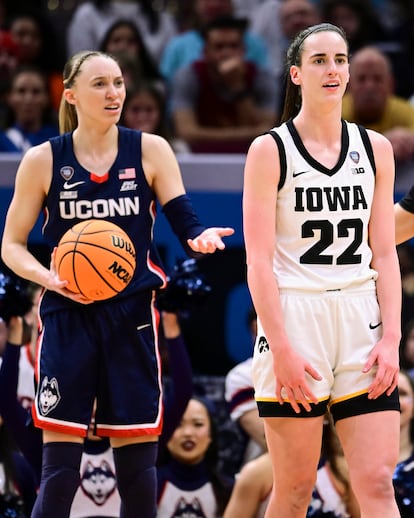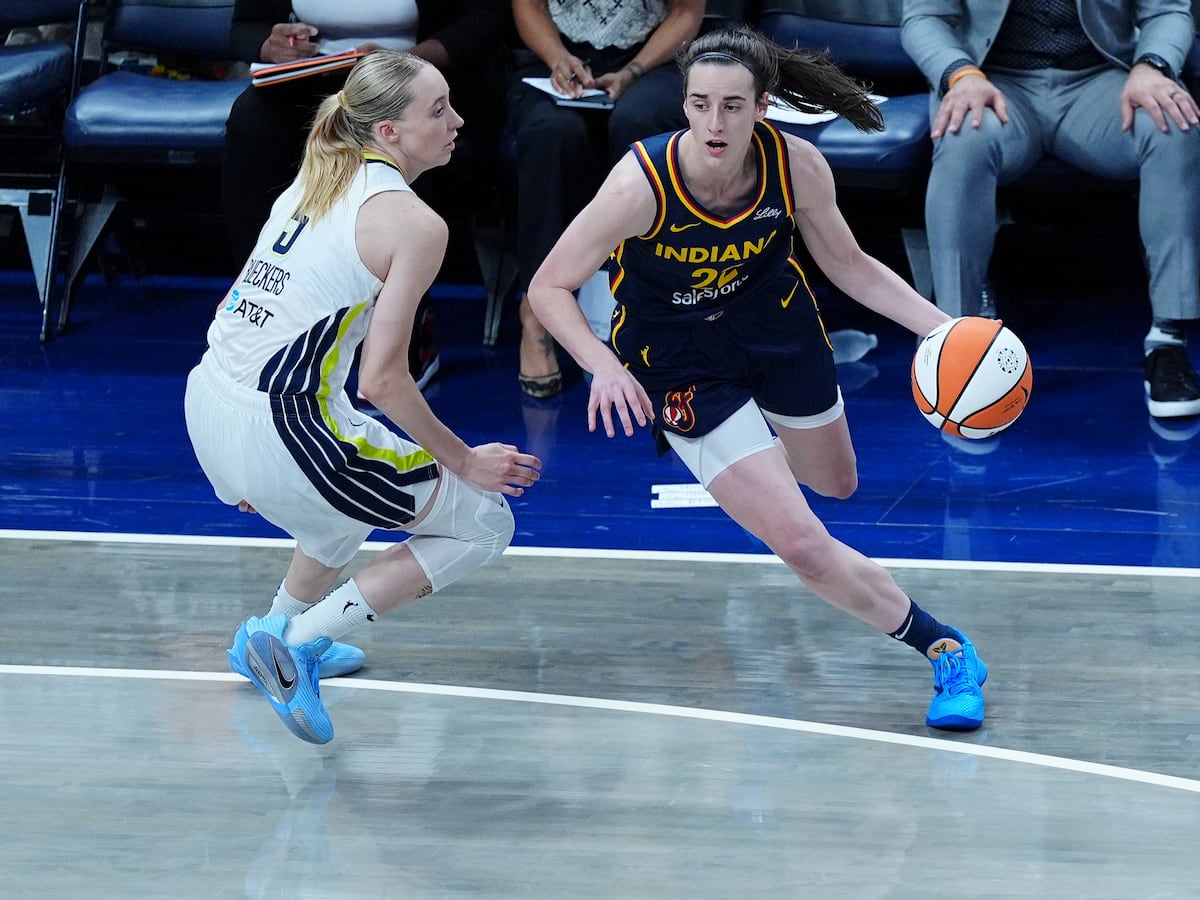Women’s basketball was crying out for a rivalry of this caliber. Caitlin Clark versus Paige Bueckers, the queen of Iowa versus the princess of Minnesota. Two white women of the same age and height who share a position on the court and broke records for early success in college basketball before making the leap to the WNBA, the best league in the world. Clark was the number one pick in the April 2024 draft and ended up with the Indiana Fever, a franchise in decline that she led to the playoffs for the first time in a decade. Bueckers, after tearing her cruciate ligament and spending a year and a half on the sidelines between 2022 and 2023, was the number one pick in April 2025 and landed with the Dallas Wings, a simply disastrous team that, thanks to her, is now beginning to look like it has a bright future.
But the similarities end there. Clark, perhaps reluctantly, is the pride of the Fox network and ultra-conservative podcasters like Joe Rogan: white, Catholic, and from the Midwest. She dominates with an iron fist in the most African American of sports. If it’s difficult to place her on the ideological spectrum, it’s because she rarely talks about politics, although she did complain, on one occasion, about her name being used in racist and misogynistic campaigns, such as the attempted digital lynching suffered in 2023 by one of her rivals, the African American Angel Reese.
 Paige Bueckers (left) and Caitlin Clark during an NCAA game in 2024.Ben Solomon (Getty Images)
Paige Bueckers (left) and Caitlin Clark during an NCAA game in 2024.Ben Solomon (Getty Images)
Something like this would never happen to Bueckers. Racists and misogynists have hated her since, at just 19 years old, she accepted the ESPY Award for the best female college athlete with words that have haunted her ever since: “In the WBNA last season, in the post-season awards, 80% of the winners were Black but they got half the amount of coverage as a white athlete so I think it’s time for change. To Maria Taylor, Robin Roberts, Maya Moore, Odicci Alexander. To all the incredible Black women in my life and on my teams. To Breonna Taylor and all the lives lost, and to those names who are not yet learned, but I hope to share, I stand behind you and I continue to follow you, follow your lead and fight for you guys so I just want to say thank you for everything.”
When she delivered that speech in July 2021, the Black Lives Matter movement was in full swing. Bueckers offered her support for what she considered a civic insurrection against “an unjust state of affairs that should end as soon as possible.”
In March, The Guardian columnist Etan Thomas, a former NBA player, dedicated a comprehensive profile to Bueckers, attempting to explain why, despite her extraordinary athletic qualities, the Minnesota native will never accrue as many advertising contracts or be as popular as Clark in “middle America.” Simply put, she has her own opinions and expresses them without hesitation. As an influencer, she didn’t hesitate to share, during her senior year at university, that during the month of Ramadan, she would wake up before dawn to make breakfast for her teammate, the Muslim Jana El-Alfy, so that she could face the day on a full stomach. This act of open friendship and intercultural respect (Bueckers, like Clark, considers herself a practicing Christian) earned her an avalanche of hate speech, as did details about her private life that have since emerged, such as her romantic relationships with Black men or the songs and prayers, in the Southern gospel tradition, that she shared with her teammates before games.
In his popular comedy Bananas, Woody Allen attributed this pair of lines to a fictional Miss America: “I think Mr. Mellish is a traitor to this country because his views are different from the views of the President and others of his kind. Differences of opinion should be tolerated, but not when they’re too different.” Perhaps that is the only blemish attributable to Paige Bueckers, the other great white hope of American professional basketball: that, being who she is, a white woman born in Minnesota, she thinks the way she thinks and doesn’t show the slightest qualms about expressing it.
Sign up for our weekly newsletter to get more English-language news coverage from EL PAÍS USA Edition

